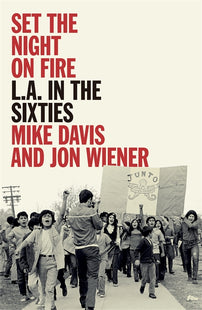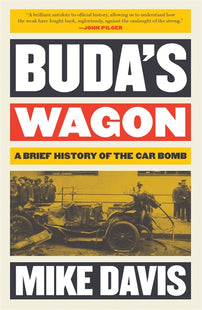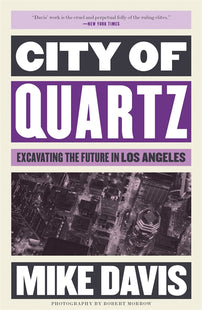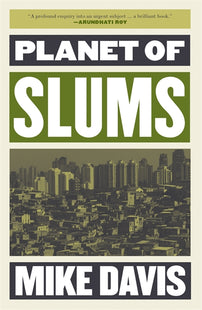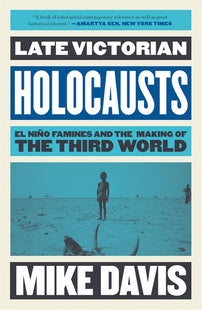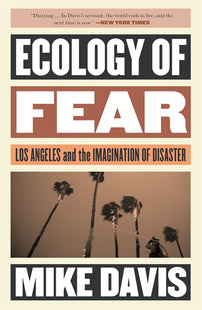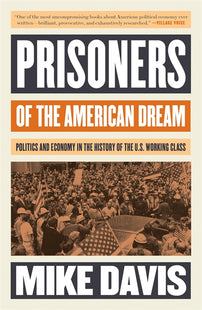Drunk with Marcuse, Dazzled by Deutscher
The inimitable Mike Davis passed away this week, leaving behind a lifetime of political writing that will help socialists sharpen our analysis for generations to come. In this remarkable short essay, Davis describes his own political development through encounters with two of the intellectual giants of his youth, Herbert Marcuse and Isaac Deutscher.
**This article was originally pubished in Drawbridge, Issue 05.
My autobiography is meaningless except to the extent that it is probably typical of a generation.
When I was sixteen, my father had a heart attack and I quit school to work for a year. My best friend, who had just joined the navy, first encouraged me to do the same and then, after having discovered the he would clean decks for the rest of his career, told me to under no conditions follow suit.
I was utterly at sea, a very unhappy sixteen-year-old, when my cousin – I have a black side of my family by marriage – invited me to come down to a demonstration at the Bank of America in downtown San Diego, sponsored by the Congress of Racial Equality. In 1963, San Diego was in every way a southern city, completely segregated in employment and housing. So I went to the demonstration and it changed my life forever. It produced an unchallengeable set of values and inspirations. The movement in San Diego, of course, could not be compared to the heroic activities of the Student Nonviolent Coordinating Committee, called the "Snick", in Mississippi, but it had its own small beauty and moral passion.
When I turned eighteen, I got a scholarship to a small liberal arts college in Oregon. I was kicked out after a month. You couldn't have been expelled more efficiently. But Reed College happened to be the only college in the West with an SDS (Students for a Democratic Society) chapter. The head of the chapter, Jeremy Brecher, said: "Well actually Mike, it's great that you are being kicked out, for one thing you are not college material anyway, and secondly, the SDS national office in New York desperately needs you; it's short of bodies." Thus I was soon on a Greyhound bus to New York City.
During the winter of 1964–65, the beginning of Johnson's escalation of the war in Vietnam, the national office had a staff of six full-timers. Although we were overwhelmed simply processing literature requests from our growing number of campus chapters, the national council meeting had given us responsibility for organizing two historic demonstrations: a sit-in and mass arrest at the (Rockefeller) Chase Manhattan Bank in protest of the bank's role in financing apartheid in South Africa and the first march on Washington to protest the Vietnam War.
[book-strip index="1" style="display"]I organized the bank sit-in, then I was told to return to California where the famed Free Speech Movement at Berkeley was growing into the Vietnam Day Committee. Like our great heroes at Snick and the industrial workers of the world, SDS organizers were supposed to live off the land. So I borrowed money from my dad, bought a car and went to Berkeley to help set up an SDS community project in the poorest places of Oakland. The nation office sent me two huge boxes of literature – my subsidy and pay for the next six months.
At Sproul Plaza (the Hyde Parker Corner of the Berkeley campus) there was insatiable demand for radical ideas. I sold so much SDS literature that I was soon able to rent a derelict house in West Oakland. No lights, power or heat, but running water: a typical crash pad of the period. I was recruiting people to work for free for the SDS, it was the easiest thing in the world, and on many nights I'd sleep on the couches of extremely sophisticated graduate students, organizers of the Free Speech Movement – like Mike James, Davy Wellman, Steve Weissman, and Bob Novick – who had written dissertations on topics like the class struggle in the ancient Sumerian world and knew the work of people like Herbert Marcuse.
Well, I had heard about Marcuse before I'd been thrown out of college. I had picked up his book One-Dimensional Man. I didn't understand a word of it, but I understood that he was this greatly respected figure and so I wrote him a letter, explaining how SDS hoped to build an interracial movement of the poor people as a second front for the southern civil rights struggle, and how we were going into the ghettos and the poor neighbourhood and organize...
I promptly got a letter back from him saying, Look, you must be adorable kids, I'm completely on your side, but don't you realize that all you're doing is working for free for the Johnson administration? You are simply integrating people into liberal capitalism, you might as well join as government volunteers.
The letter shook me to my foundations. And some years later, in 1968, when I was married and cutting meat in San Diego, a member of a group of non-students in SDS, I got hold of Marcuse's phone number from one of his graduate students and brazenly called him up.
"You won't remember me," I began, "but I wrote you this crazy letter from SDS."
"Oh yeah," he replied, "what are you doing?"
"Well look, we are not students or anything." And I explained that we were a group of young workers, including my best friend, an ex-Marine lieutenant who opposed the war in Vietnam...
"Come on Friday night," he said, "I'll buy the beer. I am sick of graduate students, come by."
We spent a magical evening getting drunk with Marcuse and hearing stories of him running messages for Rosa Luxemburg in 1918. Although the author of some profoundly pessimistic meditations, he had an almost utopian optimism about my generation and the New Left globally.
But I am getting ahead of myself: back to the Bay Area in 1965, where the entire region, from the campuses to the ghettoes, seemed to be erupting in protest. An early high-point was the famous Berkeley teach-in. It went on for 36 hours. Bertrand Russell had been invited. He didn't come, he sent a recorded message. Isaac Deutscher was the only non-American there. The American cast was quite extraordinary. It included Paul Krassner of The Realist magazine, straight-faced, telling a story on how Lyndon Johnson had buggered the ear of John Kennedy's corpse on the airplane back to Washington. At this point, people hated Johnson so much that probably half the crowd believed this pornographic tale to be true. Bob Moses, who had been the head of Snick's Missisippi project and who was a particular hero to all of us, gave a typically low-key and quietly magnificent speech on the freedom movement.
[book-strip index="2" style="display"]Norman Mailer gave an astonishing performance: virtuoso and at the same time a near-lunatic raving. It was all in all a narrative of liberalism betrayed. For the people who came out of the civil rights movement, our disaffection with the democratic party and liberalism was very deep indeed, as it had been born in the betrayal of the civil rights movement in Mississippi and other places – but many came to the antiwar movement in the idea that a triumphant crusade of goodness in American Cold-War liberalism had been hijacked. Their activism came out of their own liberal broken hearts. The system they named culpable was the betrayal of the principles of the New Deal and the internal betrayal of liberalism. Mailer cast this in novelistic terms, in a most epic but ultimately preposterous way.
By now it was past midnight and we had been listening for four, five hours. An immense crowd. There were up to 35,000 people present, our heads aching with ideas. And all of a sudden, I guess it was about one o'clock in the morning, somebody appears. I had seen pictures of Leon Trotsky, and I remember asking a friend, "Trotsky is dead, right?" Truly, for a moment, I thought it was actually him.
It was Deutscher. He spoke for no more than ten minutes. I don't know quite how to describe the impact he had. It was not a theatrical impact. It was not a projection of charisma. It was an assertion of intellectual sovereignty of a kind I had never seen before. It was also like a seance with a world that I hardly knew existed, a seance with dead revolutionaries and betrayed revolutions, with a handful of magnificent people who continued that tradition.
After Mailer and Krassner and all these other people, some were beginning to fall asleep but we were absolutely electrified. Isaac Deutscher's last words were:
"On both sides of the great divide, a few ruthless and half-witted oligarchies – capitalist oligarchies here, bureaucratic oligarchies there – hold all the power and take all the decisions, obfuscate the minds and throttle the wills of the nations... The peoples have been silent too long. We can and we must get back to class struggle. It's all dignity. We may and we must restore meaning to the great ideas. The conflicting and partly conflicting ideas by which mankind is still living. The ideas of liberalism, democracy and communism. Yes, communism."
There was a stunned silence in the crowd.
"If you can say that something changed your life," I later explained to Tamara Deutscher when I had the great fortune to know her and become her friend, "that speech did." Like my first civil rights demonstration, it was a personal burning bush, sending me in the direction of the political tradition that Deutscher so magnificently represented that night.
Of course, what was a revelation to American children of the Cold War like myself and many of my friends was old hat in many European countries, a continuity with the older Marxist tradition. Our experience was the historical discontinuity or rupture between the old and new lefts. Our major activist model until 1965, the real driving engine of the reappearance of the left in the United States, had been the militant wing of the civil rights movement. Indeed, this is where the American New Left differed fundamentally from its European contemporaries: the centrality of black radicalism and its traditions of self-organization. Deutscher was keenly aware of that, and Marcuse, as everyone knows, was Angela Davis's teacher.

